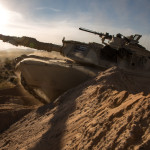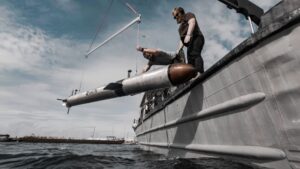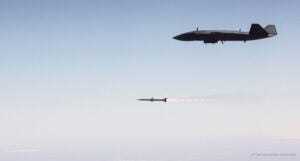By Emelie Rutherford Defense Secretary Robert Gates said he is optimistic he will receive long-sought congressional approval to modernize the U.S. nuclear stockpile. The New Strategic Arms Reduction Treaty (New START) between the United States and Russia, which a Senate panel weighed yesterday, along with the Pentagon's new Nuclear Posture Review, support a new warhead life-extension effort. President Barack Obama requested from Congress increased funding next year to improve the nuclear stockpile, and wants to transfer $4.6 billion from the…
Contract Updates
SNC Manufacturing LLC (Orocovis, Puerto Rico) – $15,857,625
SNC Manufacturing LLC,* Orocovis, Puerto Rico, has been awarded a maximum $15,857,625 firm-fixed-price, indefinite-delivery/indefinite-quantity contract for mechanics cold weather coveralls. This was a competitive acquisition with five responses received. This is a five-year contract with no option periods. The ordering…
Huntington Ingalls Inc. (Newport News, Virginia) – $9,434,758
Huntington Ingalls Inc., Newport News, Virginia, was awarded a $9,434,758 cost-plus-fixed-fee modification to a previously awarded contract (N00024-22-C-2105) to exercise options for planning and design yard activities for standard navy valves installed in commissioned nuclear-powered submarines, submersibles, and aircraft carriers.…
JRC Integrated Systems LLC (Washington, D.C.) – $10,708,589
JRC Integrated Systems LLC, Washington, D.C., is being awarded a $10,708,589 cost-plus-fixed-fee term contract (including option years) (N0003026C3031) for Trident II D5 Strategic Weapon System programs and Dreadnought programs. Tasks to be performed include operator and operational knowledge and expertise…
Lockheed Martin Corp. Missiles and Fire Control (Archbald, Pennsylvania) – $23,097,963
Lockheed Martin Corp., Missiles and Fire Control, Archbald, Pennsylvania, is awarded a $23,097,963 modification (P00007) to a previously awarded firm-fixed-price contract (N0001924C0004). This modification adds scope for the production and delivery of 4,002 Laser Guided Training Rounds Bomb Dummy Unit…













